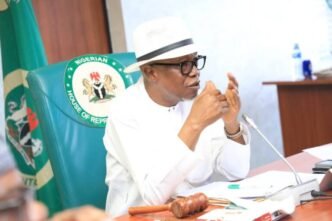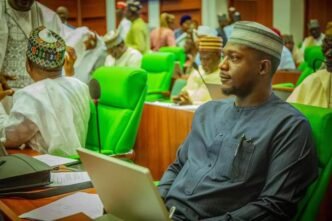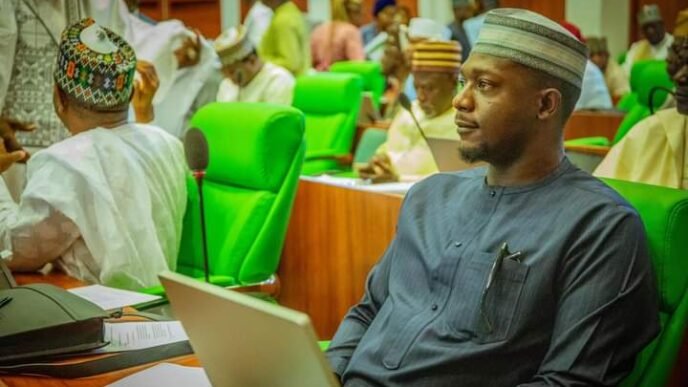HB: 1924 A BILL FOR AN ACT TO ALTER THE CONSTITUTION OF THE FEDERAL REPUBLIC OF NIGERIA, 1999 TO RAISE THE COMPOSITION OF THE CODE OF CONDUCT TRIBUNAL FROM THREE TO SEVEN; TO PROVIDE FOR REPRESENTATION FROM EACH GEOPOLITICAL ZONES OF NIGERIA AND FOR RELATED MATTERS Bill Sponsor: Hon. Shehu Dalhatu. Bill Progress: Committee Stage
This Bill seeks to prescribe an increase of the membership of the Code of Conduct Tribunal from three to seven, and to ensure that appointments to membership of the Tribunal reflect federal character, for equitable and balanced representation. And also to enhance the Tribunal’s capacity in clearing caseload and pendency of cases.
In a significant legislative development, HB. 1924 has been proposed in the Nigerian National Assembly, seeking to amend the 1999 Constitution of the Federal Republic of Nigeria. The bill aims to modify the composition of the Code of Conduct Tribunal (CCT), which is a specialized court responsible for addressing violations of the Code of Conduct for Public Officers. This proposed amendment encompasses two primary changes: increasing the number of tribunal members from three to seven and ensuring representation from each of Nigeria’s six geopolitical zones.
Currently, the CCT is composed of a Chairman and two additional members, totaling three individuals. The proposed amendment seeks to expand this panel to seven members, a change that advocates argue will enhance the tribunal’s ability to handle cases effectively. By increasing the number of members, the bill aims to foster more comprehensive deliberations and diverse perspectives during adjudications related to breaches of the Code of Conduct.
One of the most significant aspects of HB. 1924 is its provision for representation from each of Nigeria’s geopolitical zones: North Central, North East, North West, South East, South South, and South West. This move aligns with the Federal Character Principle, a constitutional guideline aimed at promoting inclusivity and ensuring that all regions of Nigeria are fairly represented in government bodies. The intent behind this provision is to enhance national unity and to build public trust in the tribunal’s decisions by ensuring that the diverse identities and perspectives within Nigeria are reflected in its composition.
Advocates for the bill argue that increasing the membership of the tribunal and guaranteeing geographical representation could mitigate perceptions of bias that may arise from a less diversified decision-making body. By establishing a more representative tribunal, the bill strives to bolster confidence in the fairness and impartiality of the tribunal’s operations, which is vital for maintaining public trust in the judicial processes that govern public officials.
However, the journey to amending the Constitution is fraught with challenges. As a constitutional alteration bill, HB. 1924 must navigate the rigorous legislative process required for amendments in Nigeria. This entails obtaining a two-thirds majority vote in both the Senate and the House of Representatives. Following this, the amendment must secure ratification from a majority of the State Houses of Assembly, a significant hurdle that will require broad support across various political and regional lines.
The implications of this proposed amendment extend beyond mere administrative adjustments. If enacted, it could represent a significant step towards reforming how public officials are held accountable and ensuring that the tribunal operates in a manner that is reflective of the entire nation. By addressing concerns over representation and inclusivity, this bill could help to strengthen democratic practices and enhance the integrity of Nigeria’s public service accountability mechanisms.
As the bill progresses through the legislative process, its potential to reshape the Code of Conduct Tribunal and its approach to handling cases involving public officials will be closely monitored by stakeholders, including civil society organizations and political analysts. The outcomes of this amendment process may well set a precedent for future reforms aimed at enhancing governance and accountability in Nigeria.











